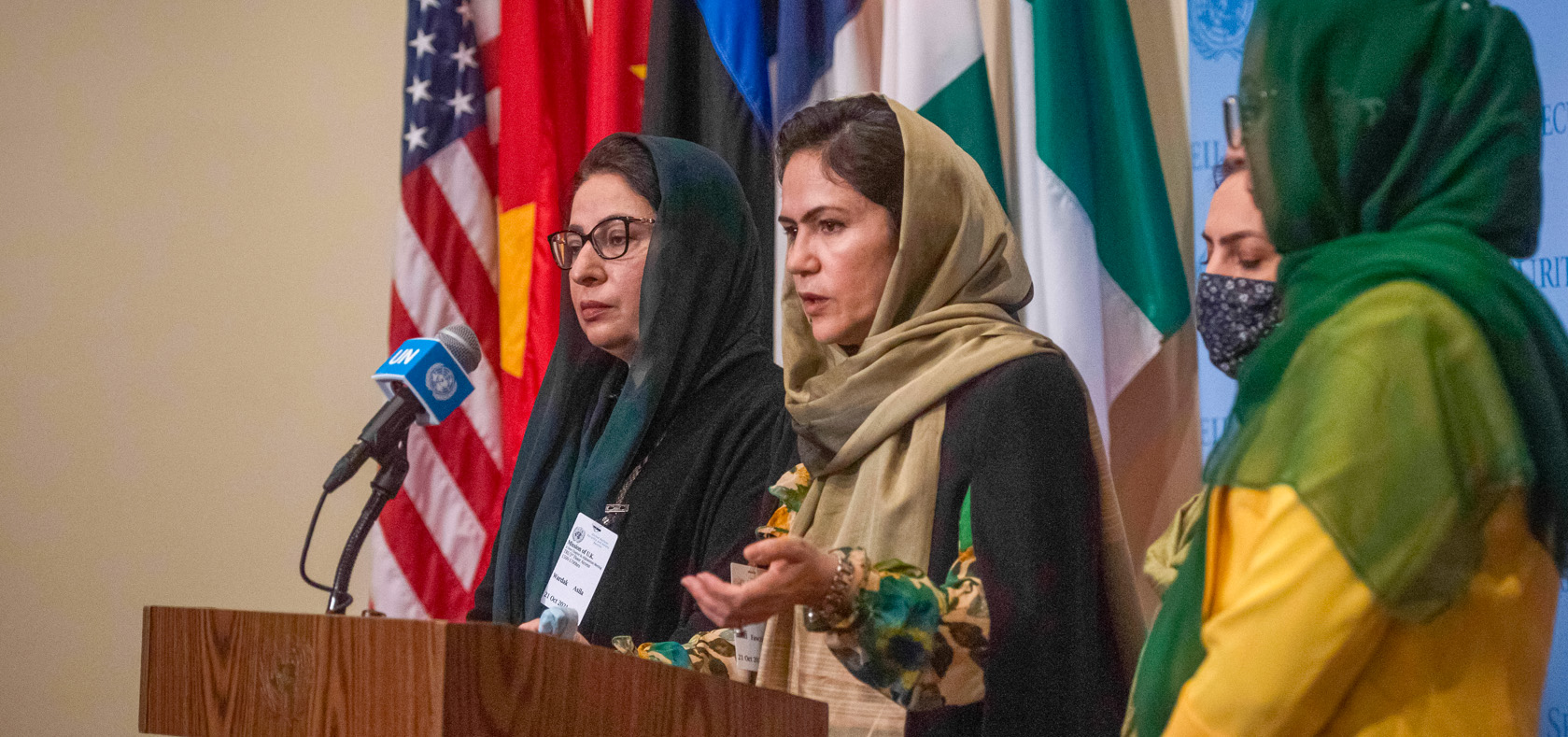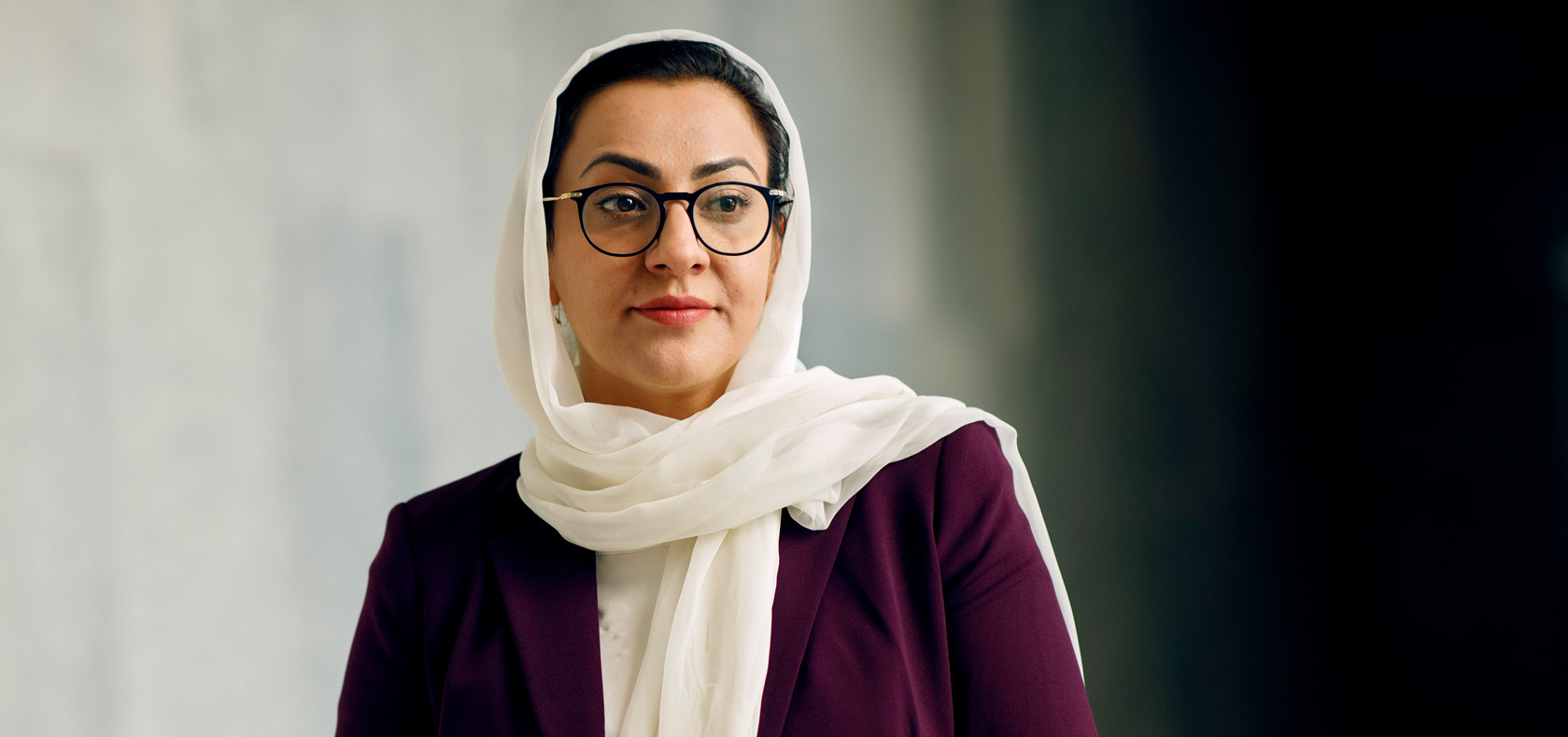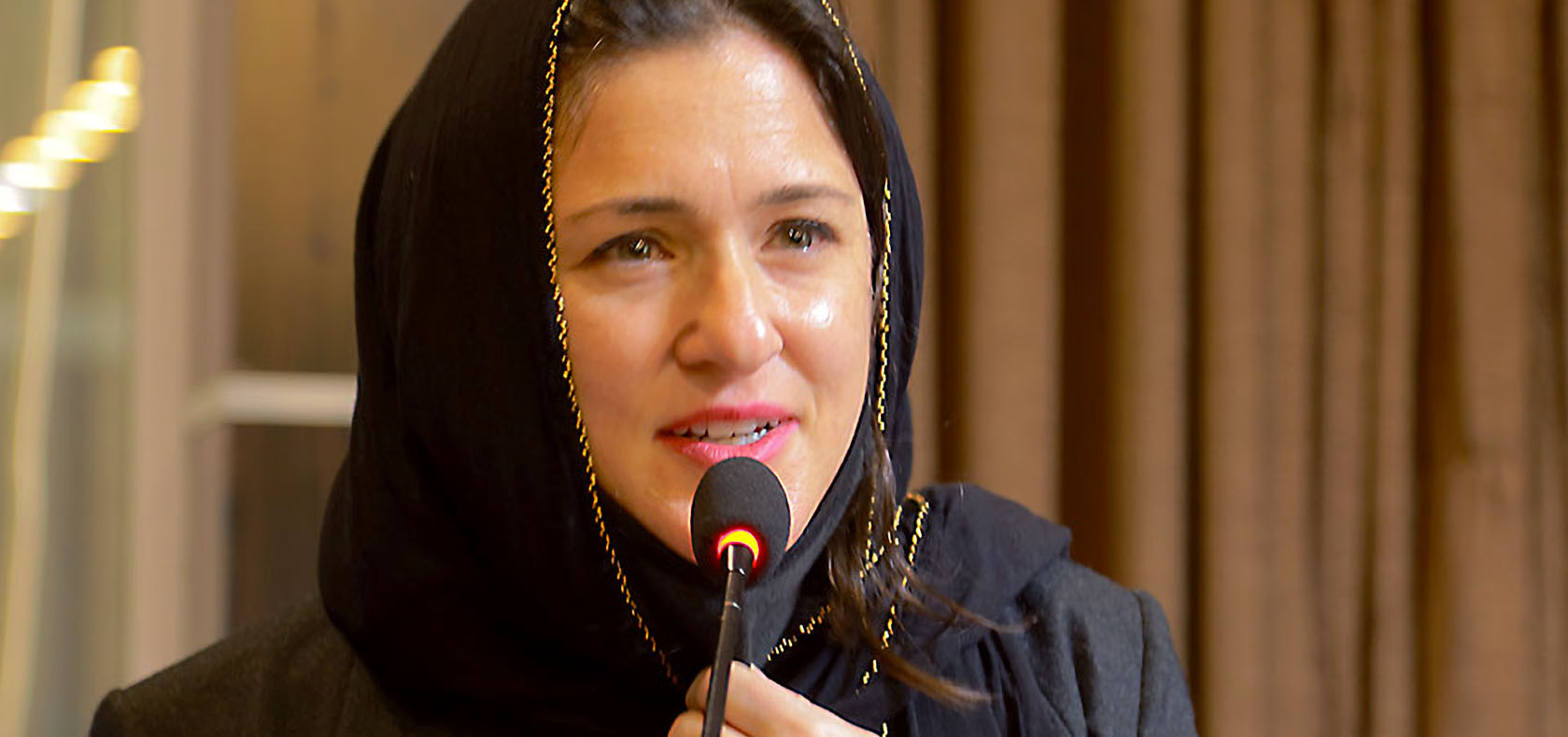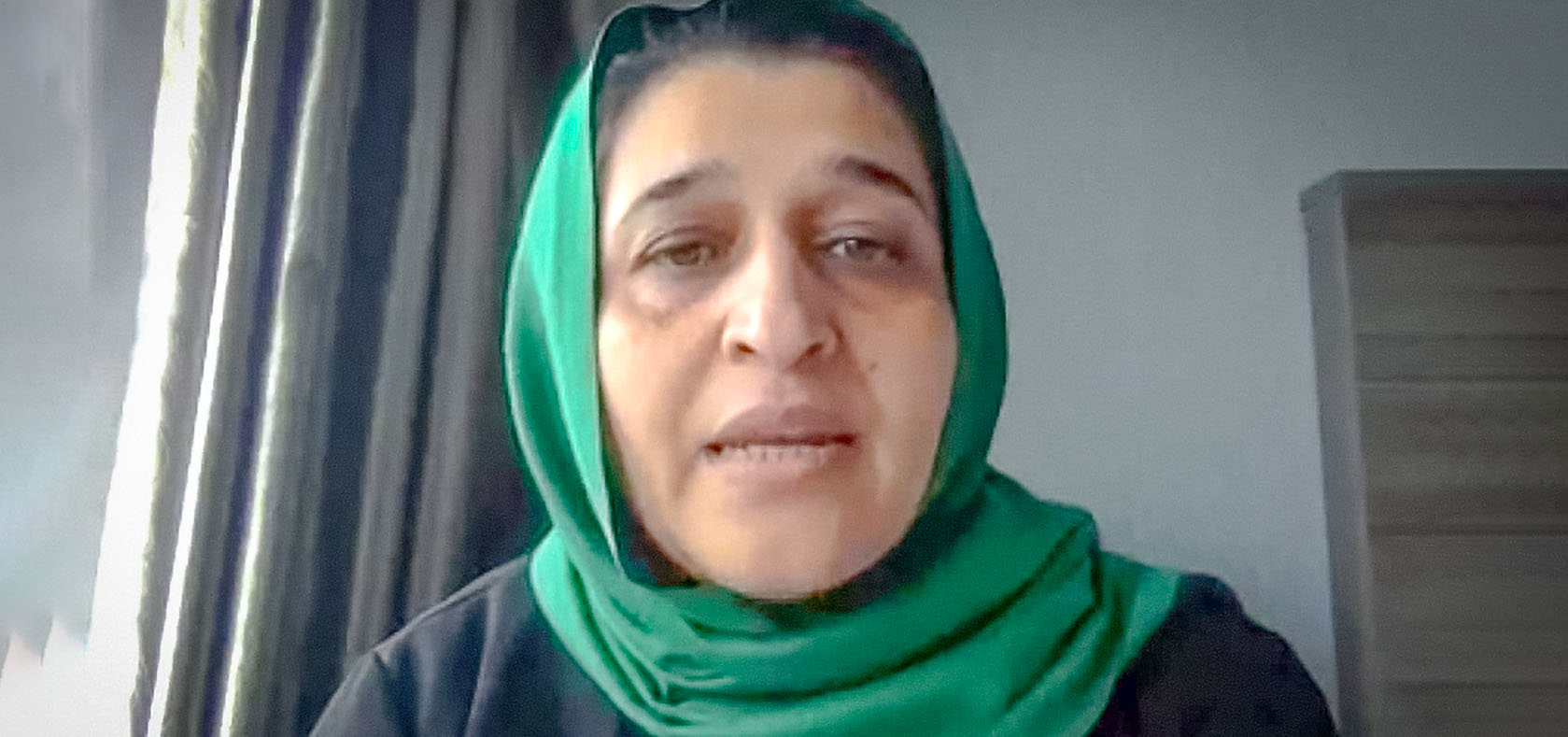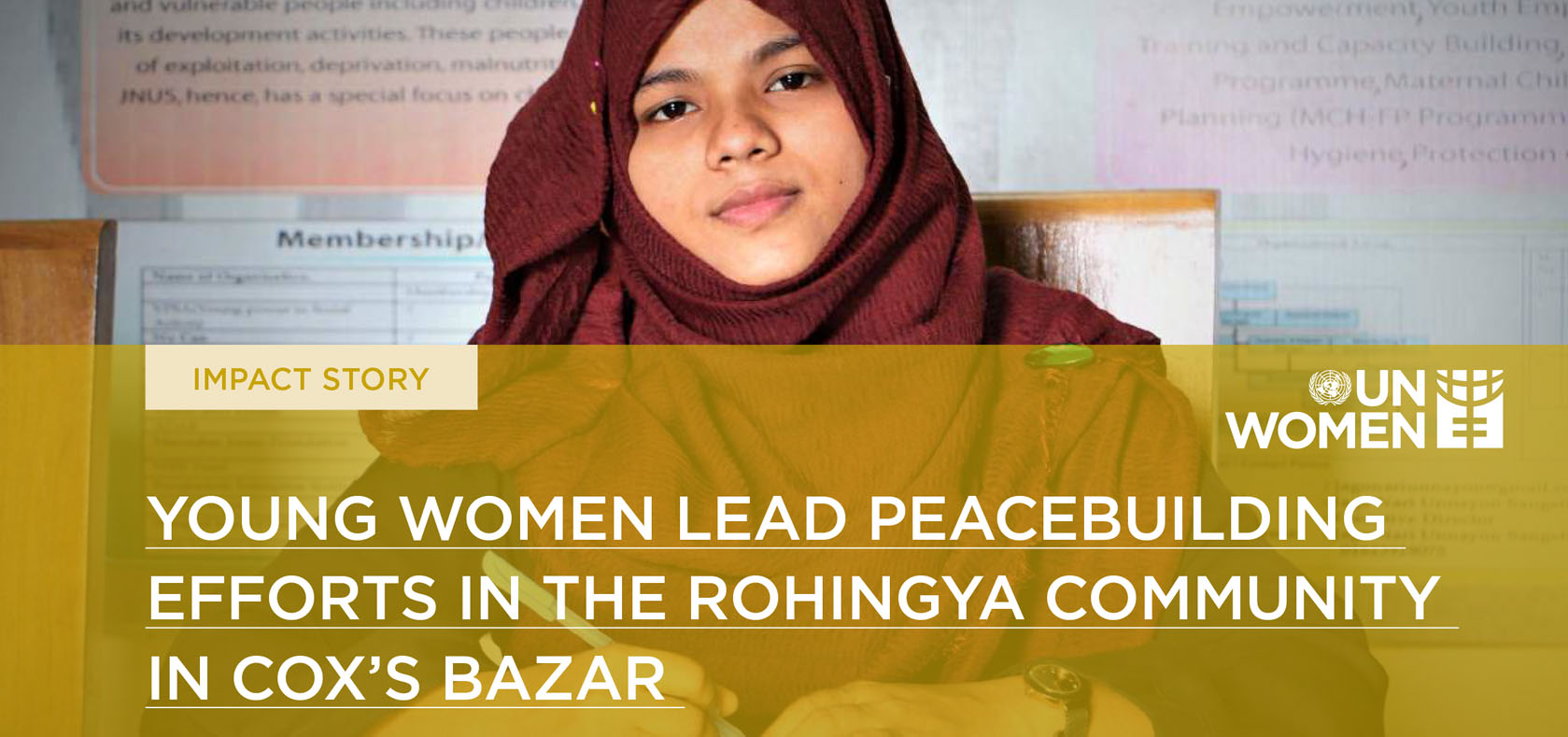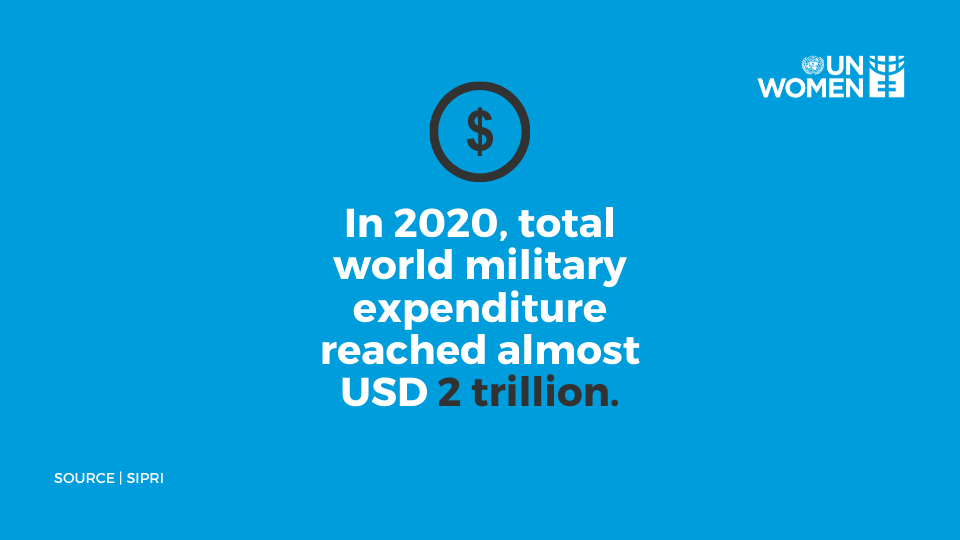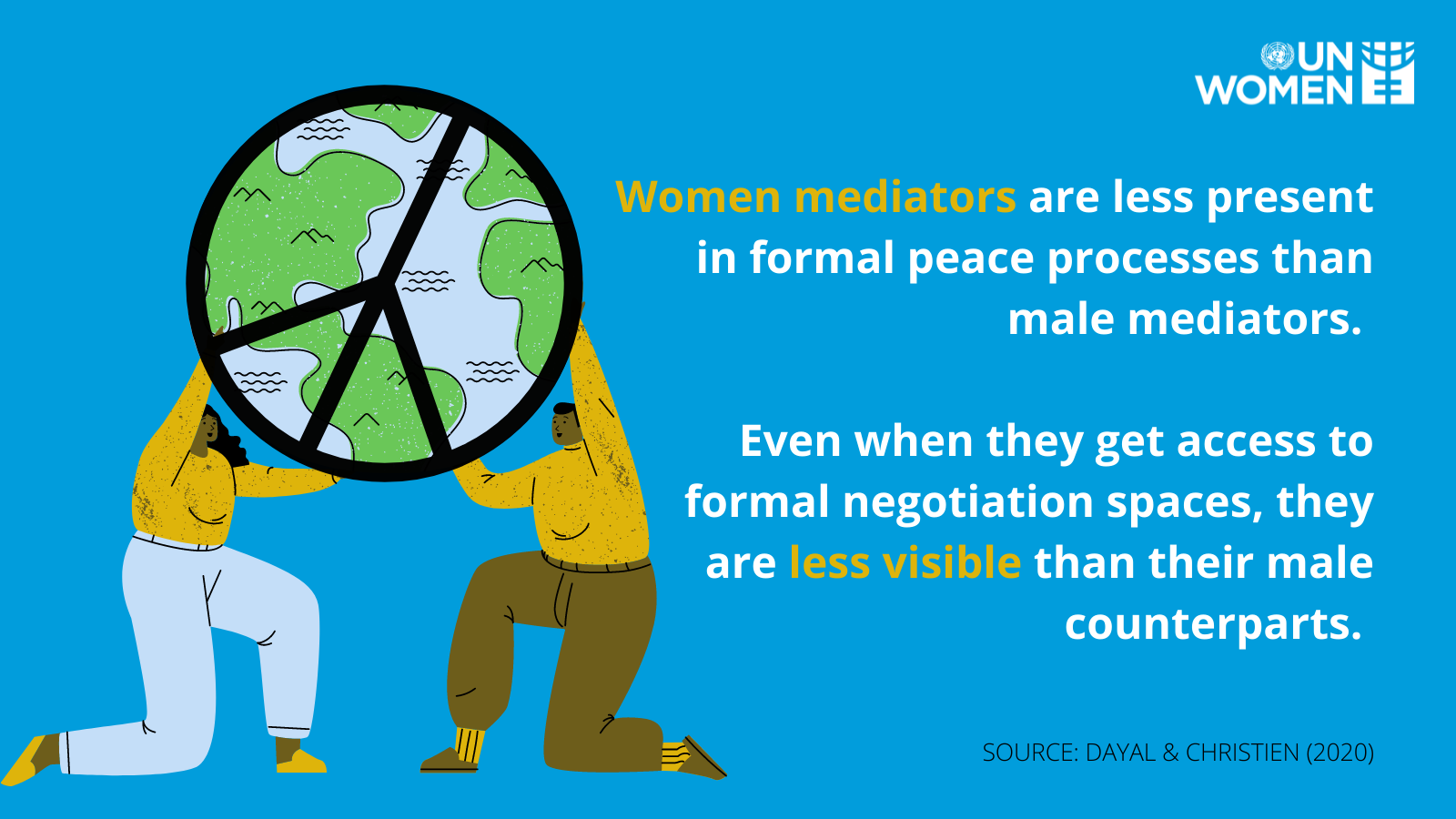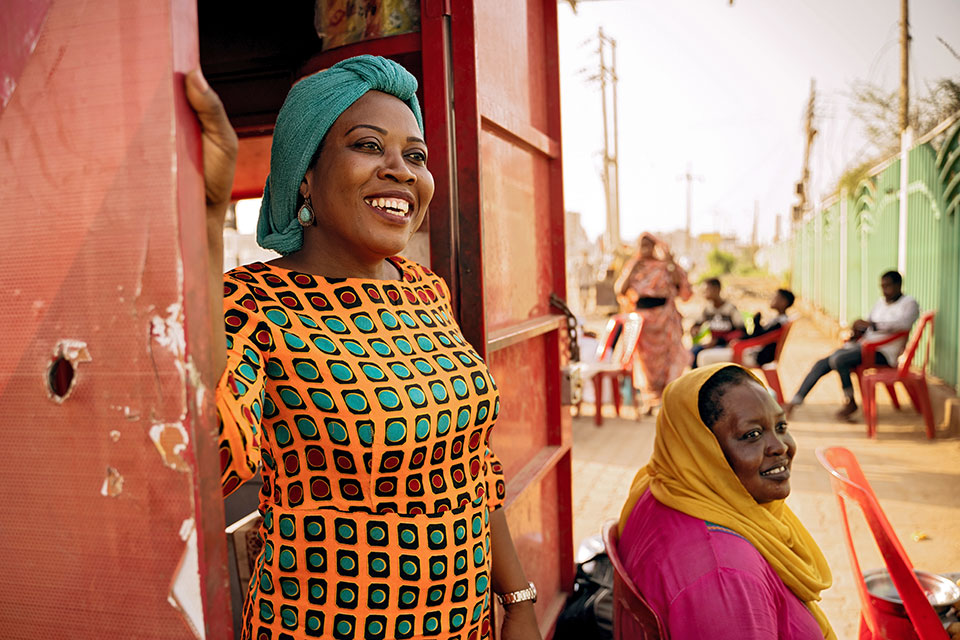In Focus: Women, Peace and Security
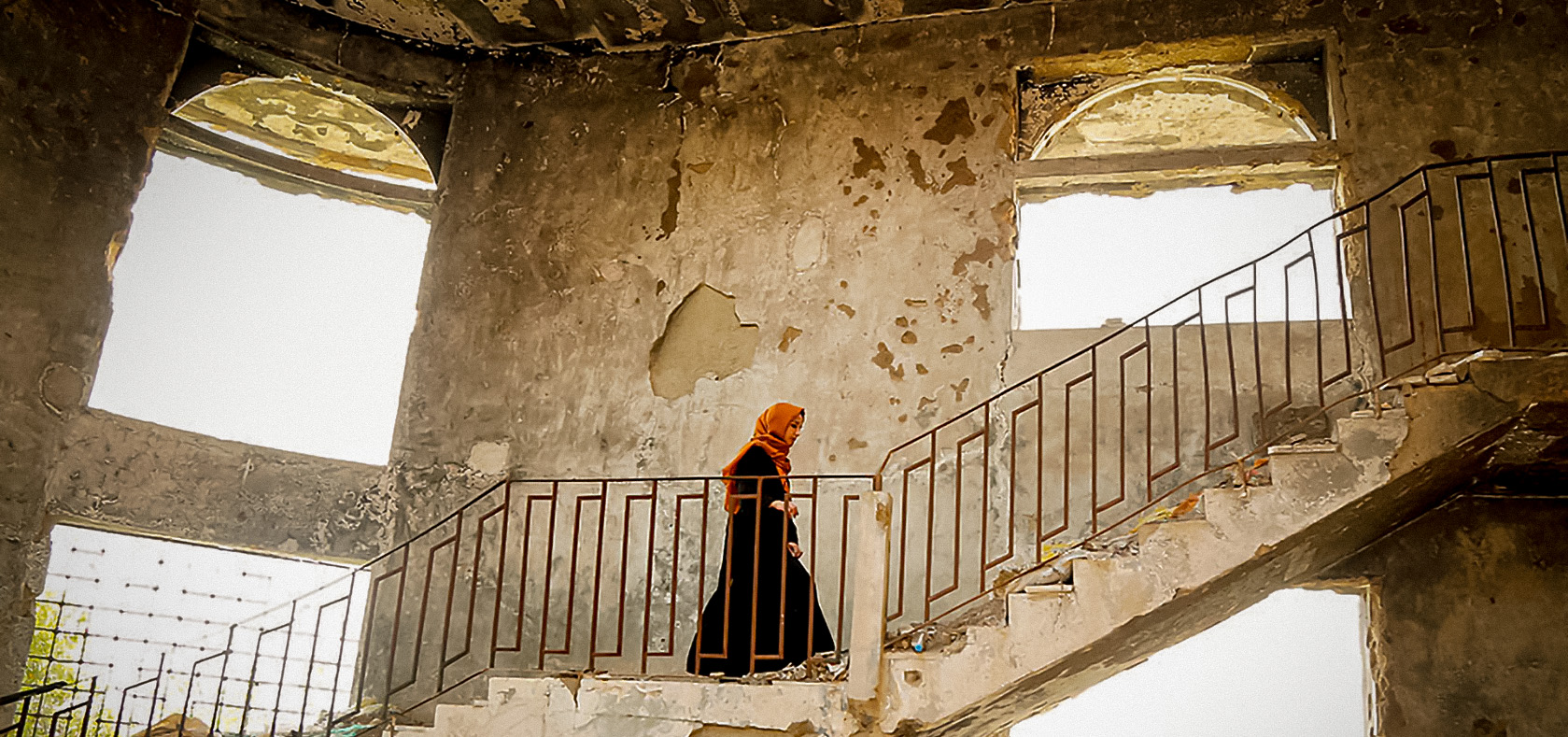
At the UN │ Stories │ Videos │ Data │ Social media
The UN Security Council will be meeting at the UN Headquarters in New York on 21 October, to discuss the women, peace and security agenda, as the world remains in a state of crisis, almost two years into the COVID-19 pandemic.
Violence, conflict, political and humanitarian crises have displaced 82.4 million people from their homes; 115 million people are living in extreme poverty; and 100 million do not have enough to eat – up from 77 million last year [1]. Around the world, from Afghanistan, to Ethiopia, to Myanmar, women’s human rights defenders have come under attack and the wave of political violence against women in politics and media has risen.
Against this backdrop, women continue to be under-represented in COVID-19 response and other decision-making fora, although women’s labour – paid and unpaid – and their leadership in communities keep families and nations running. Women made up only 25 per cent of members in the COVID-19 task forces in 36 conflict and post-conflict countries.
The Women’s Peace and Humanitarian Fund has demonstrated how direct support to women leaders and organizations makes a difference. Yet, in the wake of the pandemic, they are in dire need of funding. In the meantime, global military expenditures rose 2.6 per cent in 2020, reaching almost USD 2 trillion, outpacing pandemic-related health spending.
The UN Secretary-General’s 2021 report on women, peace, and security issues an urgent call for action to reduce military spending and to increase investment in peacebuilding, education, health and other public programmes. Reversing the upward trajectory in military spending is a priority for the women’s movement for peace and a core commitment of the United Nations. The UN peacekeeping operations accounts for only 0.3 percent of global military spending, and places a stronger focus on delivering on women, peace and security commitments.
Led by the Government of Kenya, the Security Council Open Debate on Women, Peace and Security, on 21 October, will focus on investing in local women peacebuilders – a key strategy to deliver on these commitments. The evidence is clear: women’s participation in peacebuilding generates more buy-in from communities and makes peace more durable.
With more than 153 signatories, the Women, Peace and Security and Humanitarian Action Compact that was launched in July 2021 at the Generation Equality Forum, provides further impetus and action to finance and promote women’s leadership and agency across peace, security and humanitarian sectors.
As governments, humanitarian actors, and peacebuilders from Colombia to Afghanistan meet at the UN this week, watch this space for news, updates and voices of women peacebuilders.
A week of women, peace and security at the UN
- UN Media Noon Briefing, 20 October, featuring Afghan women activists
- Media advisory: Afghan women to voice their priorities and concerns in the context of the Security Council Open Debate on Women, Peace and Security
Videos
Stories
Data
Photo exhibit
Social media
Uplift the power of women peace builders and stand up for lasting peace using the hashtags #WomenPeacePower and #UNSCR1325 (English); #MujeresPoderdePaz (Spanish); and #FemmesPouvoirdePaix (French).
For facts, stories, events and more social media content, check out our Trello Board.
Follow us
@un_women, @onumujeres, @onufemmes, @unwomenchief, on Twitter
UN Women, ONU Mujeres, ONU Femmes, on Facebook
unwomen on TikTok
UN Women on Instagram
UN Women on Pinterest
UN Women on LinkedIn
Notes
[1] United Nations Security Council (2021). Report of the Secretary-General on women peace and security (S/2021/827), para. 43. [Forthcoming]
See coverage of the Open Debate on Women, Peace and Security in previous years: 2020, 2019, 2018, 2017, 2016, 2015, 2014, 2013, 2012
